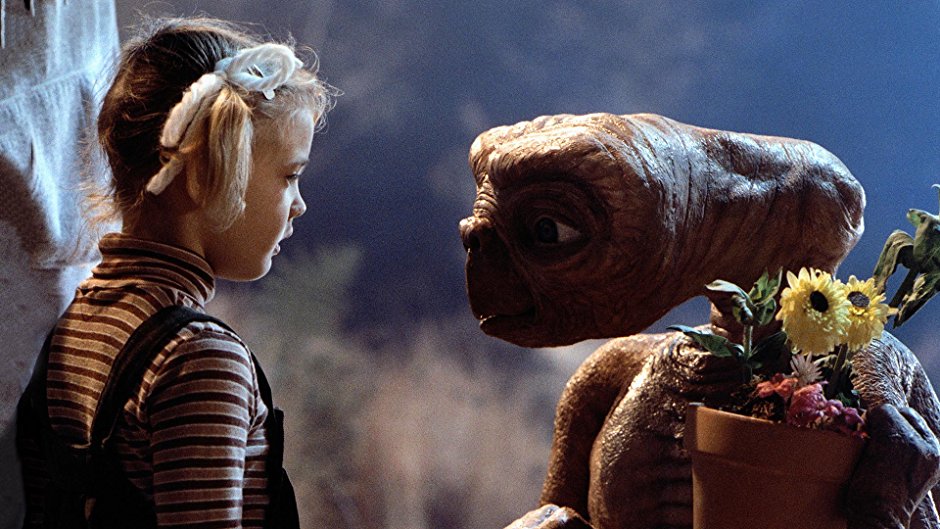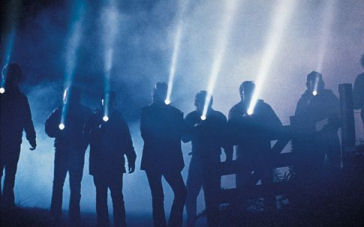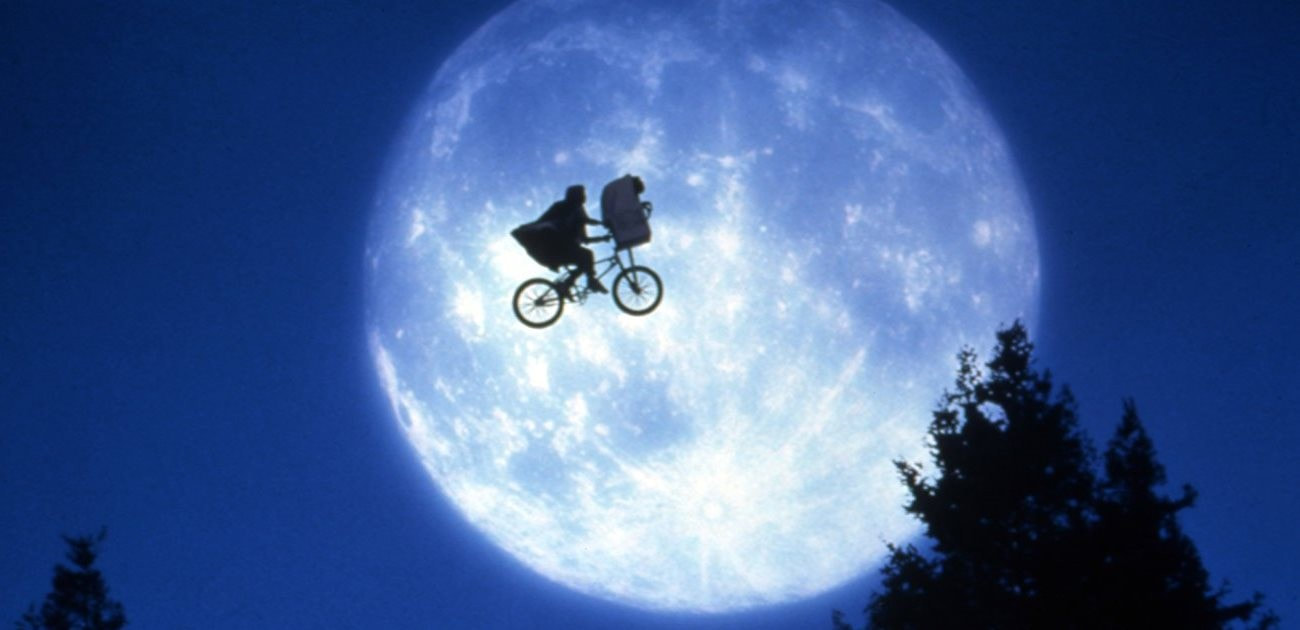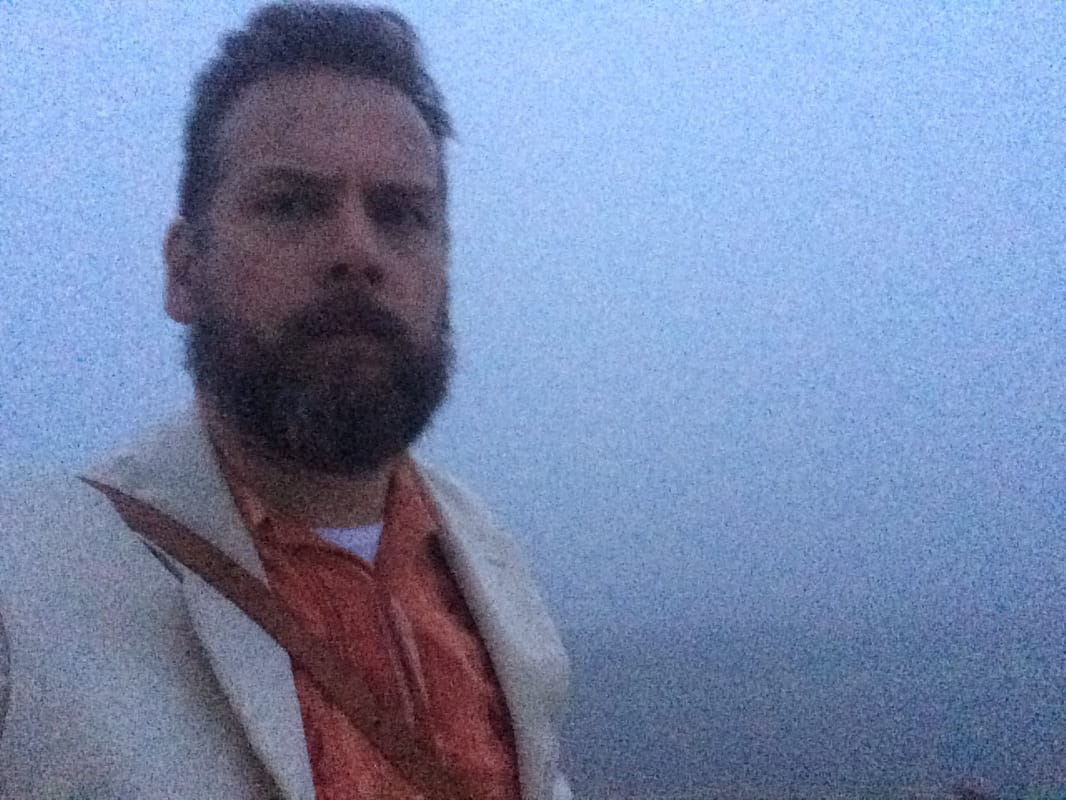|
I don't cry watching movies. I weep. Sometimes inconsolably. Certain classic movies can press my buttons in a way that isn't affected by repetition. It's a Wonderful Life always hurts me. Weirdly, the bit that is the most 'I'm not crying, you're crying' moment is when Old Man Gower hits George and then realizes he's made a a mistake. Other films get me all lachrymose and I couldn't tell you why. Even adverts at times. Re-watching E.T. the Extra-Terrestrial it was embarrassing. My daughter told me to pull myself together.  I saw E.T. at the cinema when it first came out. I read the novelisation by William Kotzwinkle - which was weirdly more adult than it should have been. I had to look up the word nipples. The music by John Williams was not only a bestselling album but entered the UK singles chart. I remember it being featured on Top of the Pops. But whereas Jaws had made us afraid to go into the water and Close Encounters had made us look to the skies with a mix of wonder and dread, E.T. was crazy in the way that it promoted overwhelmingly positive emotions. It is a film about friendship and family, love and courage. It is rich in sentiment without ever falling into sentimentality. It has humour and stands as a classic of emotional intelligence.  Just as the domestic disintegration in Close Encounters was inspired by his parents' divorce, so E.T. is about literal and metaphorical rehabilitation. In an atmospheric prologue, a botanist alien is left behind by his spaceship when investigating humans storm through the Redwoods with their flashlights. The creature takes refuge in the backyard of a family which is suffering the aftermath of a separation. Dad's in Mexico with Sally and the wounds are still fresh. Elliott (Henry Thomas) is the middle sibling of three, only half-understanding what is going on. He is left out of the Dungeons and Dragons game which is older brother Michael (Robert MacNaughton) is playing with his Goonie like pals and has to gofer for them. He's collecting the pizza when he makes a discovery in the yard. Whereas Roy Neary's motivation to get in touch with the aliens was an obsession that had been implanted in him by the aliens, Elliott is motivated by loneliness and need. With E.T. Elliott connects with another being who is simultaneously young and old, innocent and wise. Carlo Rambaldi based the alien's face on Ernest Hemingway and Albert Einstein. The voice of 2-packs a day Pat Welsh sounds like Homer Simpson's sisters-in-law. E.T. teaches Elliott kindness (free the frogs!) and is a healer with his glowing finger and his empathetic mind-meld. He also very quickly becomes a way of rebuilding the family. Gerty (Drew Barrymore) and Michael are hauled in as co-conspirators. And by the end of the film mom and the neighborhood are also doing their best to help out. Even the adversary Keys (played by eighties perennial Peter Coyote) is just an older version of Elliott. Ultimately, he wants to be friends with E.T. too even if we doubt the methods and consequences of the government intervention. That's all to say, there's very little in the movie which is wrong and nothing that is evil. The adversary is absence - the quest to bridge distance. By the final act, John Williams' score becomes the dominant voice of the movie. Spielberg edited the final sequences to the score rather than the other way around. The chase is exciting but Spielberg keeps it nice and tight - gone are the excesses of 1941 and Sugarland Express. As if to emphasize how the story is entering into a sacred pantheon of childhood imagination, Elliott wears a Little Red Riding Hood and flies like Peter Pan. And like the best childhood stories the lesson is a hard one under the sugar of fun. Friendship includes separation. Love hurts. Everything changes. But the consolation is the family Mary (Dee Wallace), Michael, Gerty and Elliott are back together again. E.T. the Extra-Terrestrial was a huge hit for Steven Spielberg. And not only a commercial success which created as much of cultural moment as Close Encounters and Jaws had, it was also the first moment that Spielberg was considered a 'serious' director. There was a script written for a sequel and Kotzwinkle wrote a sequel novel but in the end - as with Jaws - Spielberg decided sequels were tacky and he didn't want to spoil the original. But George Lucas had other ideas and Spielberg's next film would - after all - be a sequel.
0 Comments
Leave a Reply. |
AuthorJohn Bleasdale is a writer. His work has appeared in The Guardian, The Independent, Il Manifesto, as well as CineVue.Com and theStudioExec.com. He has also written a number of plays, screenplays and novels. Archives
March 2019
|


 RSS Feed
RSS Feed


